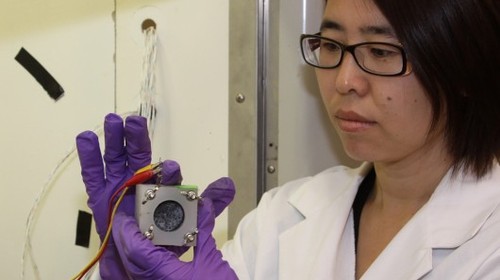Produce Electricity Directly From Wastewater!

Hong Liu, an associate professor in the OSU Department of Biological and Ecological Engineering claims, that the treatment of wastewater could be a huge energy producer, not a huge energy cost. Research at Oregon State University by engineer Hong Liu has discovered improved techniques to produce electricity from sewage using microbial fuel cells. The benefits of this green technology are obvious: it could save much money, provide better water treatment and promote energy sustainability. The researchers are sure, that due to this technology waste treatment plants could not only power themselves, but also feed excess electricity back to the grid. In MFCs, bacteria are used to oxidize organic matter – be it in wastewater, grass straw, animal waste, and byproducts from such operations as the wine, beer or dairy industries – which produces electrons that run from the anode to the cathode within the fuel cell to create an electrical current. The researchers say they have been able to produce MFCs that produce more than two kilowatts per cubic meter of liquid reactor volume, this power density is much higher than has been achieved previously and could see the new technology replacing the widely used “activated sludge” process that has been used for almost a century. The team is now looking for financing to conduct a pilot study, e.g. at a food processing plant; it would help them reduce the high costs of the system by identifying potential reductions in material cost, further optimizing the use of the microbes and improving the system’s function on an industrial scale.
Via:gizmag.com
| Tweet |











